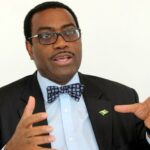“Kuyi Hakuri” he uttered. Then he began to move his lips, uttering the shahada (the Muslim attestation of faith). Shortly after, when he turned around and saw the worry in my face, he waved his hands asking me to leave him alone, but I stood there, refusing to leave the room . I had been constantly by his side for this last three months of his sickness. A few minutes later, his aged body went still – alas! He was gone.
Baba, as we all called him, always warned us about materialism, pointing out its inevitable dangers both in this world and hereafter. He would preach self-contentment as the best remedy for a happy and fulfilled life. “Always see this world as a ladder, where everyone is trying to reach the top. Don’t look up and ask ‘when will I reach the top?’, rather look down and see the people who are even trying to get to where you are such as the sick, the hurt, the poor etc. That way you will always thank God, because it’s neither your strength, wisdom, wealth or know- how that must have gotten you that far”. He was a strong believer that Allah is always in control and destines whatever happens to one.
As his grandson, I was privileged to spend a lot of quality time with him, especially in the last seven years of his life. Every evening we would sit and talk about different things. Of course, he did most of the talking, after all what I had to tell him. He would tell me numerous stories about his life experiences, often repeating the same stories repeatedly.
The much older generation today will remember Alhaji Ibrahim Biu as the mouthpiece of the North, being the first Minister of Information of Northern Regional government and the ruling party at independence. He held that position until the first military coup took place in January 1966. The next generation that went to school in the late 60s through the 70s particularly in the six north eastern states will recall him as the person who always addressed them as “leaders of tomorrow” whenever he went on school tours.
Alhaji Ibrahim Biu lost his mother at birth and went through school without any support from his father, who did not appreciate the value of western education then. After his education, he started his career as a pupil’s teacher in 1943 with zeal and dedication, which he upheld through all subsequent assignments. After his studies at the Kaduna Technical College, he returned to then Biu Division as a Resident Engineer in 1947 where he rose to become Senior Councillor and member of council in charge of works up until 1956.
He would recall with pride how he supervised the building of schools, dispensaries, market stalls, public buildings and filling up roads to move agricultural goods and people. These were all built to specifications, with the best available materials and at reasonable cost, he once told me. This part of the conversation always ended with Baba challenging me to “go and see some of my structures, they are still standing till today”.
When “Engineer”, as he was popularly called then, decided to run for election to the Northern House of Parliament in 1956, the 110 delegates from the wards overwhelmingly voted him. He won 75 votes to defeat his opponent who was the candidate of the power that was, at that time. of course the electoral officer, a British man then, couldn’t be corrupted.
In his maiden speech to the House of Parliaments, he commended the British for all they did since coming into Nigeria. Nevertheless, he was quick to point out that “however there is one area that the colonial British administration has not given enough attention, and that is agriculture which is the main stay of our people. I know someone will inform me about the improved seedling in Samaru Zaria, but when you came our people were hoeing and until now (1956) they are still hoeing what we need is mechanized agriculture to increase and improve production”. This drew the ire of the colonial minister in charge of agriculture who asked angrily: “where has that bush man come from?”
He was still a very young man when Sir Ahmadu Bello, the Sarduana of Sokoto, appointed him the first indigenous Minister of Information of the Northern Government in 1960. He recorded outstanding achievements in that position. Apart from visible things like the Gaskiya Ta Fi Kobo/New Nigeria Newspapers Limited and Radio/NTV Kaduna among others, which he justified through parliamentary debates.
He was constantly defending government policies and ensuring harmony between the government and mostly the then strong traditional institution by resolving disputes. He was also a master strategist and campaigner. Despite holding that position, he never lied because he wanted to be trusted by the people.
After the rebellion in January 1966, when Nzeogu saw him, he said: “The mouth piece of NPC, we looked for you to silence you forever, but now that the rebellion is over, go back to your village and make sure you don’t grant any interviews,” because of his love for service, he went back to his Native Authority (NA) to continue serving his people as a councillor, something that is unthinkable in modern day Nigeria. After the promulgation of the Decree, which gave the councils more autonomy, he become the Senior Councillor in charge of the entire administration in then Biu Native Authority.
Alhaji Ibrahim Biu was conferred with the National Honors of CON in 1981, and was turbaned the Waziri of Biu in 1973, 20 years after the seat had been vacant.
Baba’s life was not all rosy. He had his own down times and trials in life, like the hoax of missing Native Authority fund in 1952 when he was in Liverpool (UK) for a Local Government course. He was highly embarrassed by the allegations. A thorough investigation was done and when nothing incriminating was found against him, the authorities apologized to him.
He was a religious man who was also generous with the little he had. Most Friday’s, we prayed at the national mosque, where he always went with coins to give out as alms after offering the salat.
A few years after his demise, I went to the mosque to pray. After the prayers, an old woman walked to me and asked “Inna tsoho? Na dade ban gan shi ba (where is the old man ? I have not seen him for a long time).” When I told her that he had died, she broke down in tears.
In material terms, Baba passed on leaving only two houses, one in his native Biu, which he built from his income over the years and the other in Maiduguri, which was sold to him by the state government at the end of his years of service. He also left behind a Mercedes Benz he bought in 1973.
Alhaji Ibrahim Biu always reminded us that “a hundred years ago none of us was here and probably a hundred years to come, none of us would be here. So, your achievement as a person is how many lives you are able to touch while on your journey through this world. What did you do to make the place you find yourself better than you met it? How will you want people to remember you? If its wealth or power, someone before you must have had it more than you, and surely someone in the future will surpass you. I am yet to see a person who was buried with his wealth.”
With a heart filled with contentment, he left all his affairs in the hands of God, always having faith that things will all work out fine. “Let Allah handle all your affairs, if he left for you to carry on can you? So always be with him at all time either during joys or adversaries and he will also see you through,” he would say.
When he died in 2002, the turnout at his funeral was remarkable. A friend told me that the guard at the graveyard asked him “who have these people come to bury?” According to him, in the approximately 25 years that he had been there, he had not seen crowd like that. The mourners come from all walks of life, each with something spectacular to say on how he touched their lives irrespective of religion, creed tribe or whatever affiliations.
Baba worked so hard to earn a better life in the hereafter. May the Almighty Allah grant him Jannatun Firdaus, which he so cherished and worked so hard for.
Aliyu is a senior manager with the MTN.
 Join Daily Trust WhatsApp Community For Quick Access To News and Happenings Around You.
Join Daily Trust WhatsApp Community For Quick Access To News and Happenings Around You.


